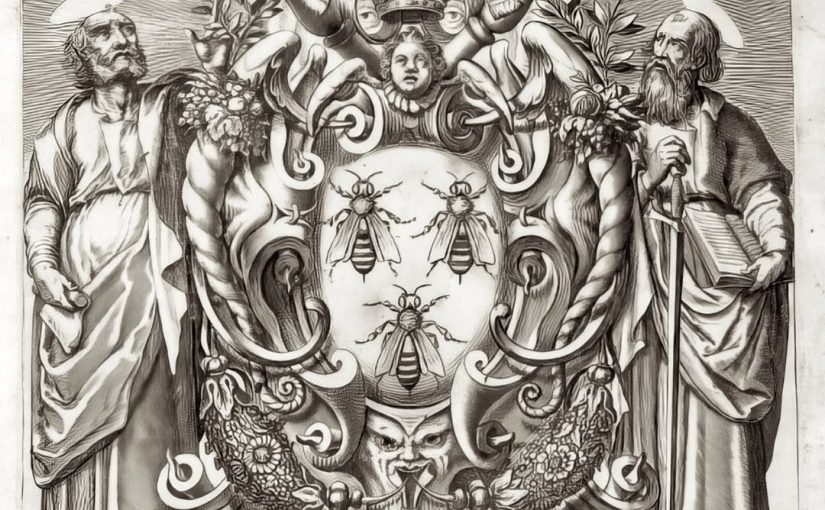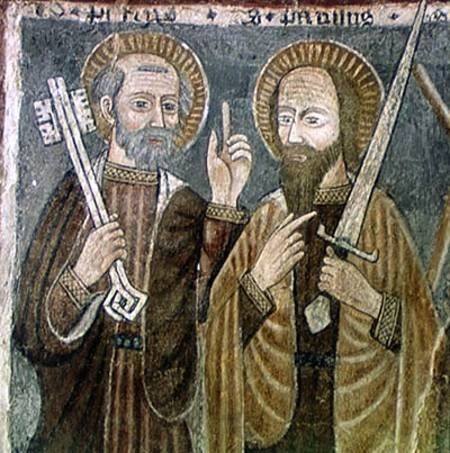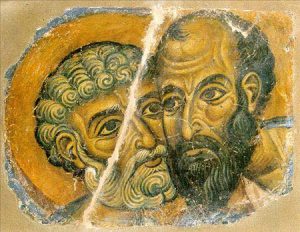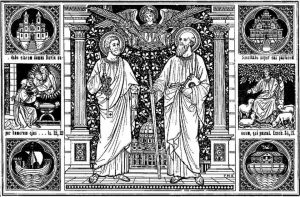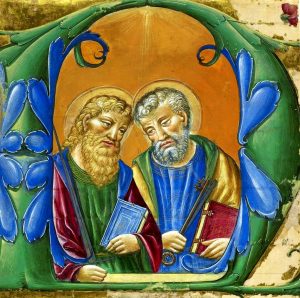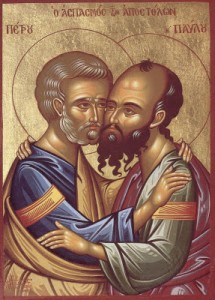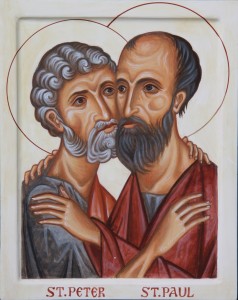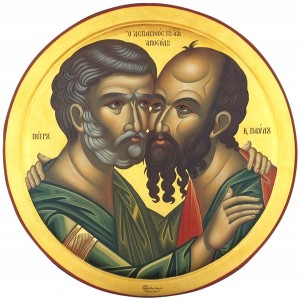 A meditation on the feast of Saints Peter and Paul
A meditation on the feast of Saints Peter and Paul
“Conduct yourselves with fear in the time of your sojourning” (1 Peter 1:17).
These are the words of the great Apostle Peter, words that have a dual foundation: heavenly inspiration and personal experience. By divine inspiration, Peter, a simple fisherman, became a teacher of the people, a pillar of the Faith and a powerful miracle-worker. According to his own experience he learned that all of his wisdom and power was of God and, because of that, one should possess the fear of God. No other fear, except the fear of God.
The foolish one becomes frightened only when lightning flashes and thunder cracks but the wise man fears God every day and every hour. The Creator of lightning and thunder is more awesome than both of them and He does not appear before you, from time to time, as lightning and thunder rather He is continually before you and does not move away from you. That is why it is not enough, from time to time, to have fear of God, but one must breathe in the fear of God. The fear of God is the ozone in the suffocating atmosphere of our soul. This ozone brings purity, easiness, sweet fragrance and health. Until he had become strengthened in the fear of God, Peter was only Peter and not an apostle, hero, teacher of the people and miracle-worker.
O my brethren, let us not rejoice before the harvest. This, our life, is not a harvest but rather, it is a sowing, labor, sweat and fear. The plower lives in fear until he has gathered the fruits from the field. Let us also delay our rejoicing for the day of harvest, for now is the time for labor and fear. Will I be saved? This question should torment every one of us, in the same way that the plower is tormented by the question: “Will I reap the fruit of my labor in the field?” The plower labors and fears everyday. Let us also labor and fear “all the time of our sojourning” on earth.
O awesome and powerful Lord, sustain us in Your fear.
To You be glory and thanks always. Amen.
Take from the Prologue from Ochrid
